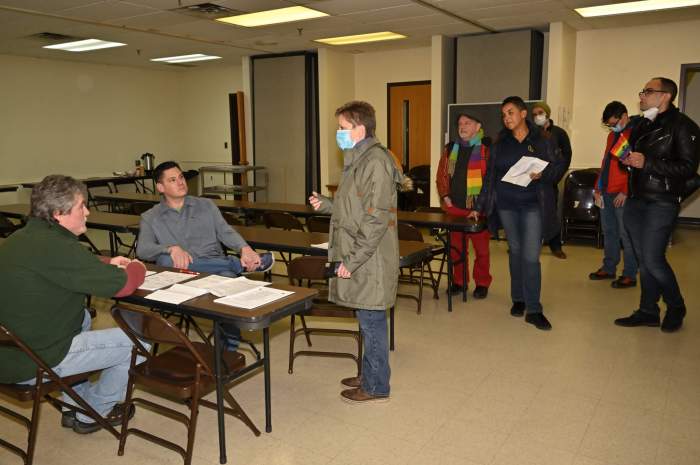By Johan Ahlander and Anna Ringstrom
STOCKHOLM (Reuters) -Stefan Lofven was on Sunday hours away from becoming the first Swedish Prime Minister to lose a no-confidence vote, after failing in a last-ditch effort to secure majority support in parliament for proposed rent reforms.
The vote was called last week for Monday by the anti-immigration Sweden Democrats, after the Left Party, which Lofven relies on to pass legislation, withdrew its support over his plan to liberalise Sweden’s rigid rent control system.
Lofven’s centrist Social Democrats have led a fragile minority government since inconclusive elections in 2018, striking a deal on a broad reform programme with two centre-right parties.
In one of many concessions to the Liberals and the Centre Party, he agreed to submit a proposal to parliament in the autumn to abolish collective bargaining for rents for newly built apartments. [L5N2O01LC]
Lofven sought to soften the reform on Sunday by inviting landlords and tenant organisations for negotiations, but the Left Party dismissed that initiative as “political theatre.”
“Following the notice we have received today, the Left Party will vote ‘red’ tomorrow against Stefan Lofven,” its leader Nooshi Dadgostar told a news conference.
If, as appears almost certain, Lofven loses Monday’s vote, he can either resign and let the speaker task lawmakers with trying to form a new government, or call a snap election, something that has not happened in Sweden since 1958.
In either case, national elections scheduled for September next year would go ahead as planned.
Lofven, who took four months to form a government after the 2018 election, called the Left Party’s reaction irresponsible.
“We now expect that other political parties are prepared to be responsible and not plunge Sweden into a political crisis,” he told a news conference.
Economists have said they do not expect the political uncertainty to weigh on Sweden’s economy given the strict fiscal rules the country operates under.
(Reporting by Johan Ahlander and Anna Ringstrom; Editing by Emelia Sithole-Matarise and John Stonestreet)























